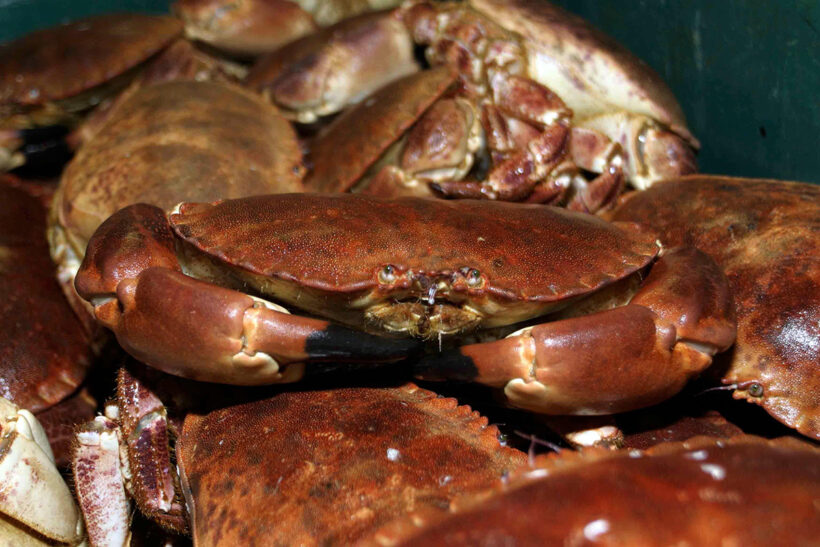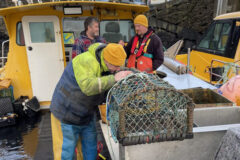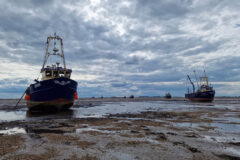According to a new report by the EU’s Scientific and Technical Committee (STECF) on non-quota stocks (NQS), there was a consistent decline in landings of brown crab between 2016 and 2020 of approximately 10,000t across six sea basins (North Sea, West of Scotland, Irish and Celtic seas, and the Eastern and Western Channel).
Brown crab ranked seventh in the list of most important NQS by landing weight (10,045t) and fourth by value (€25.8m) for EU states between 2017 and 2019.
The findings of the report were presented by Commission official Paulo Vasconcelos at a recent EU advisory committee joint workshop on brown crab.
The main fleets targeting brown crab were Irish and French, with both supporting a range of vessel sizes.
Regionally, the West of Scotland supported the highest landings by weight and value, followed by the Celtic Sea, North Sea and Irish Sea. Apart from the North Sea, all regions experienced a decline in landings since 2016-2018.
The West of Scotland demonstrated a recovery in 2021, but this was not mirrored across other regions. Conversely, in the North Sea, landings remained relatively high between 2019 and 2021. Although the majority of landings were taken in Quarter 3 (July to September), when crab stocks are typically highest, in the North Sea, landings were greatest in Quarter 4.
Taking both weight and value into account, France had the greatest share of EU landings, followed by Denmark and then the Netherlands.
Paulo Vasconcelos focused on the overarching findings of the STECF report, and then concentrated on the brown crab findings. He said the main objectives of the report were to present data and information on the spatial distribution of fishing effort, landings weight and respective value of the 20 most important NQS, to evaluate the quality of data on NQS from different sources, and to identify issues and support stock assessment and fishery management.
Average landings of NQS across all EU states from 2017 to 2019 showed a total landings weight of 291,100t, and a landings value of €539.2m.
During the workshop, advisory committee members highlighted the data gaps around fishing effort, and the importance of obtaining this information to help explain the possible causes of landing declines and inform the development of management measures.
Paul Vasconcelos said that while the exact reasons for declines are not known, a combination of overexploitation, climate change and the prevalence of disease may be having an effect.
This story was taken from the latest issue of Fishing News. For more up-to-date and in-depth reports on the UK and Irish commercial fishing sector, subscribe to Fishing News here or buy the latest single issue for just £3.30 here.
Sign up to Fishing News’ FREE e-newsletter here.






